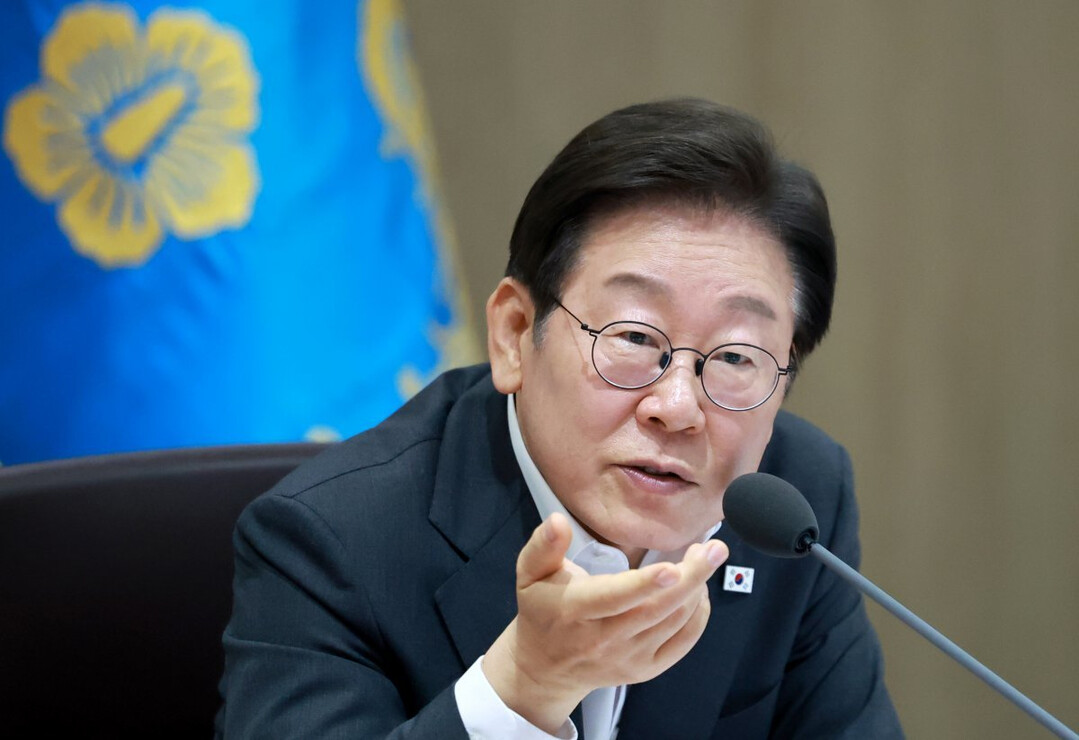
In a bold and unscripted move during a televised cabinet meeting, President Lee Jae-myung of South Korea has signaled a dramatic shift in his administration's approach to corporate accountability. Moving beyond the traditional discourse of economic growth at all costs, the president delivered a sharp rebuke to those who argue that workplace safety regulations and enforcement impede national development. His impassioned remarks, which touched on issues from industrial fatalities to chronic wage theft, have set a new precedent for how the government will balance the imperatives of industry with the fundamental rights and well-being of its citizens.
The catalyst for the president's commentary was an impassioned rejection of the notion that stringent safety inspections are "killing" the construction industry. With a tone of incredulity, President Lee directly challenged this line of reasoning, declaring, "Is that a reasonable thing to say?" He went on to argue that the true measure of a nation’s economic health lies not merely in its GDP but in its commitment to the sanctity of human life. This statement served as a prelude to a groundbreaking directive: the exploration of a punitive measure that would see companies responsible for serious accidents face crippling financial penalties. President Lee suggested that fines be calculated as a multiple of a company's sales or several times the cost of necessary safety infrastructure, such as fall-prevention facilities. He contended that such "punitive damages" would be a more potent deterrent than traditional criminal charges, a clear indication that his administration intends to hit corporations where it hurts most—their bottom line.
This focus on corporate responsibility extended to the long-standing scourge of wage theft, an issue the president spoke about with profound personal conviction. He recounted his own experiences with unpaid wages, leveraging that empathy to condemn the practice as fundamentally dehumanizing. "We are not slaves," he proclaimed, a visceral rejection of a system that allows some to exploit the labor of others with impunity. President Lee's criticism was aimed squarely at the current legal framework, particularly the "victim's intent to prosecute" clause, which he argued makes it all too easy for unscrupulous employers to evade justice. This legal loophole, he suggested, enables a culture where only the most vocal victims receive compensation, while others, "suffering in silence," are left without recourse. To combat this, he endorsed a policy of "severe punishment" and was met with an immediate pledge from Minister of Employment and Labor Kim Young-hoon to abolish the victim's intent clause for habitual offenders and to publicly shame them by releasing their names.
The president's vision for a more equitable society also addressed the plight of migrant workers, a population particularly vulnerable to exploitation. He ordered a review of a proposal that would permit foreign laborers to remain in the country until their unpaid wages are settled, a move designed to prevent employers from exploiting the precarity of their legal status. This directive not only underscores the administration’s commitment to fairness but also its willingness to challenge established legal norms to protect the most vulnerable segments of its workforce.
While his stance on labor rights and corporate accountability was resolute, President Lee also used the platform to advocate for a balanced approach. In a nuanced discussion about the newly approved "Second Amendment to the Commercial Act" and the "Yellow Envelope Act," he invoked the Korean proverb "Gyo-gak-sal-u," which warns against well-intentioned but overly aggressive actions that cause more harm than good. He portrayed the relationship between business and labor as symbiotic, with each entity providing a necessary "wing" for the nation to "fly." This metaphor served as a call for both sides to engage in constructive cooperation and for the government to craft policies that, while ensuring justice, do not stifle the very engines of economic prosperity. By urging his ministers to develop complementary measures to address corporate concerns, President Lee demonstrated that his administration’s mandate is not to vilify business but to recalibrate the scales of justice, ensuring that both economic dynamism and social equity can coexist in a new era of Korean governance.
[Copyright (c) Global Economic Times. All Rights Reserved.]





























